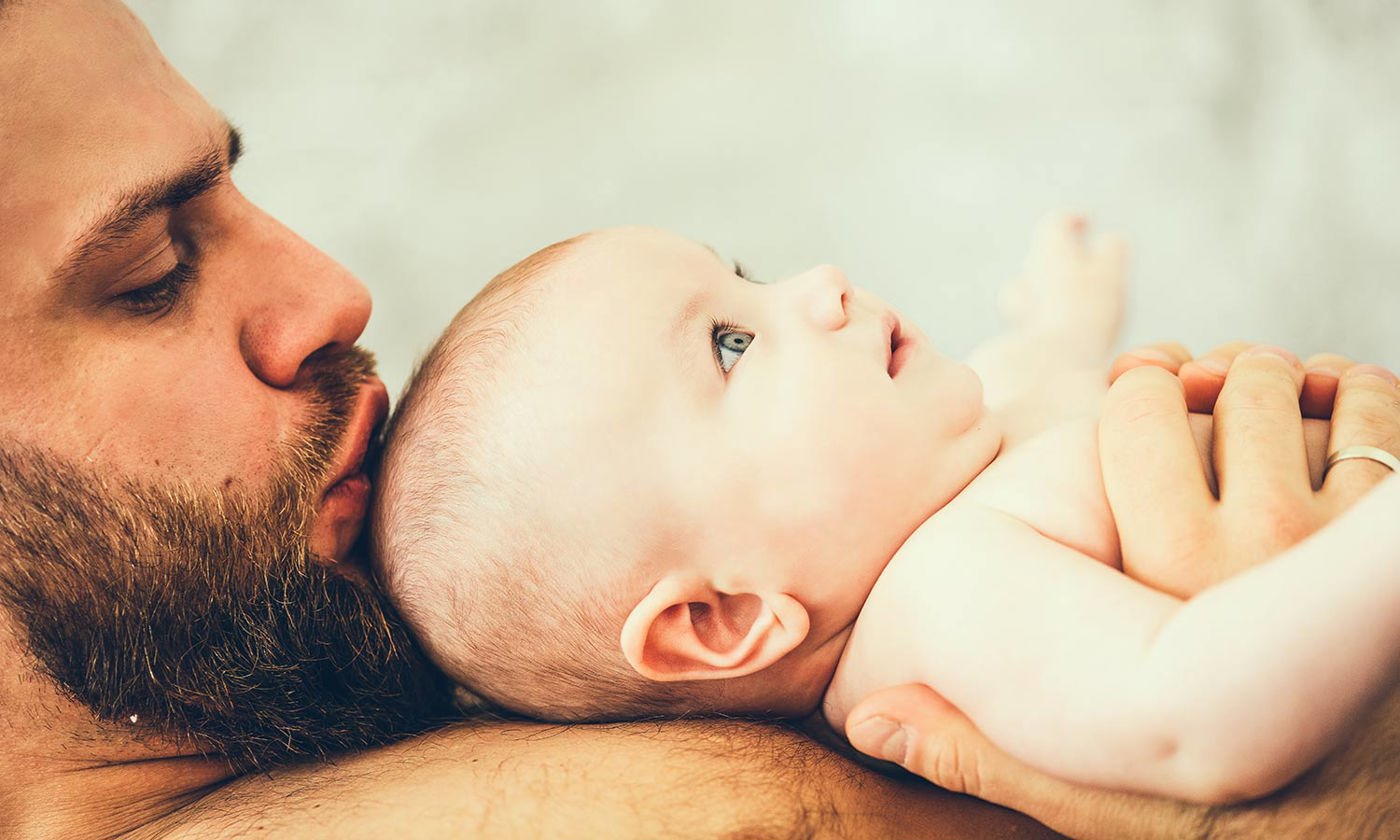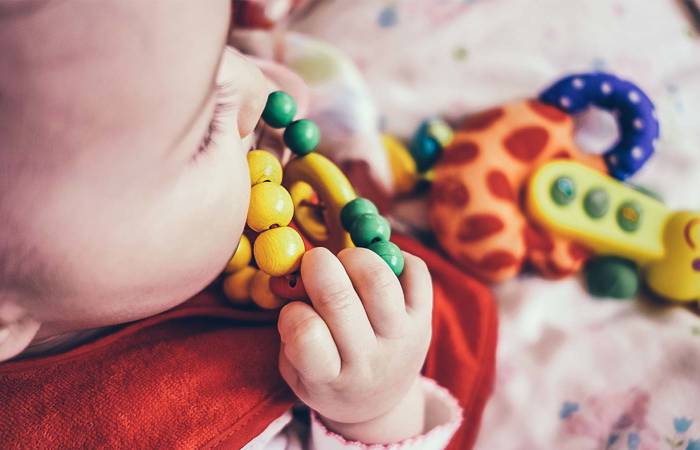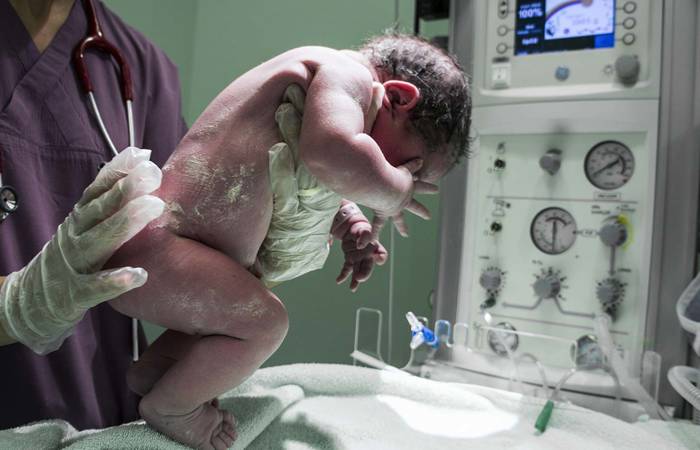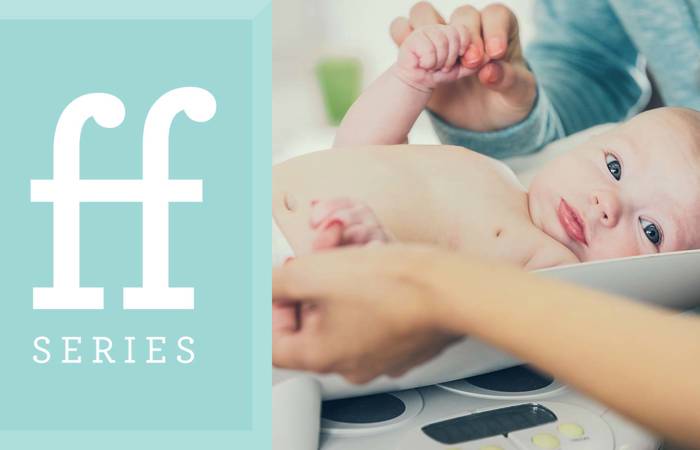Like what you see?
Sign up to receive more free parenting advice.
Thank you for subscribing to our newsletter!
Child Development

Credit: iStock.com/O_Lypa
Hugging your newborn in those first few weeks goes far beyond making them feel safe and secure.
According to the research1, skin-to-skin cuddles assist in brain development, help establish breastfeeding and even improve a parent’s mental health.
It all comes down to touch.
“Touch is important for all newborns and is certainly important for healthy full-term babies, but touch for a premature baby is something we need to consider carefully,” says Dr Abbey Eeles, Senior Research Officer and Neonatal Occupational Therapist at the Murdoch Children’s Research Institute.
Dr Eeles is dedicated to raising awareness of the positive impact of skin-to-skin ‘kangaroo’ care for newborns, particularly vulnerable babies born prematurely.
Dr Eeles explains that we need to grasp an understanding of how a premature baby experiences touch and other sensory stimuli in their outside world.
“Touch is one of the first sensory systems to develop and for a baby in the mother’s womb whose arms and legs are supported close to their body in a tucked position, the touch they receive is constant and predictable.
“In contrast, in the neonatal nursery, touch for a premature baby is often inconsistent, unpredictable, and painful.
“A systematic review of observational studies2 identified that on average a premature baby will have between 7.5 to 17.3 invasive procedures per day.
“For a baby born premature, it is not until about 35 weeks of age that their brain development has the capacity to differentiate between touch that is painful versus normal human touch.
“This means that everyday caregiving activities in the neonatal nursery such as changing a nappy, dressing and undressing or changing a baby’s position needs to be delivered with considerable care and sensitivity and in a way that, as much as possible, provides predictable and consistent touch and reduces stress for the baby”.
When held in kangaroo care, research shows that a premature baby’s sleep is more restful compared to when they're asleep in their incubator or cot. This allows their brain and body to do its best growing in the neonatal nursery.Dr Abbey Eeles
Stay up to date with the latest news and articles from First Five Years
Thank you for subscribing to our newsletter!
According to the latest report from the Australian Institute of Health and Welfare (AIHW), 314,814 babies were born in Australia in 2016, with 26,759 (or 8.5 per cent) being born prematurely (before 37 completed weeks gestation).
“Skin-to-skin kangaroo care is a powerful intervention that can provide that consistent, predictable touch and has a range of benefits to both baby and parent wellbeing,” says Dr Eeles.
Skin-to-skin kangaroo care
Kangaroo Mother Care originated in Bogota, Colombia in the early 1980s and is an early intervention practice where the newborn is placed on the mother’s bare chest.
“At that time, there were not enough incubators to accommodate all of the premature or low-birth weight babies and as a result, babies often shared incubators and consequently infection and mortality rates were extremely high,” explains Dr Eeles.
“As an alternative, mothers began holding their premature or low birth weight babies with skin-to-skin contact, and the lifesaving benefits of kangaroo care were first identified.
“In Australian neonatal nurseries, we use what’s referred to as intermittent kangaroo care, that is, a combination of incubator or cot care and skin-to-skin kangaroo care.
“Skin-to-skin kangaroo care is backed by over twenty years of scientific evidence showing improved health outcomes for both the infant and the parent,” says Dr Eeles.
The benefits of kangaroo care
“When held in kangaroo care, research shows that a premature baby’s sleep is more restful compared to when they're asleep in their incubator or cot. This allows their brain and body to do its best growing in the neonatal nursery,” says Dr Eeles.
“Kangaroo care can help increase mothers milk supply and has shown to support mothers and babies in learning to breastfeed.
“In kangaroo care, a baby’s temperature, heart rate, and breathing can become more stable. This saves much needed energy and assists their weight gain.
“Babies cry less and show fewer signs of stress when held in kangaroo care.
“And premature babies held in kangaroo care experience less infections and go home earlier from the hospital compared with babies cared for in an incubator or cot.”
While research focuses on the benefits of kangaroo care on premature newborns, Dr Eeles notes that healthy full-term babies benefit from skin-to-skin contact too.
“For healthy full-term babies kangaroo care can support a baby in feeling safe and secure and feeds into their emotional brain development and attachment with their parents.”
As for pre-term babies, the benefits, of essentially a hug, are amazing.
The benefits for parents
But the benefits aren’t just limited to the newborn.
Dr Eeles says, “the birth of a premature baby can be an extremely stressful and traumatic event and parents of premature infants have up to ten times the rate of anxiety and depression compared with parents of healthy, full term infants.”
“Mothers and fathers who provide kangaroo care to their premature babies have reported fewer symptoms of depression and feel more confident in caring for their baby.
“And fathers report that providing kangaroo care helped them identify with their role as a parent and helped them cope with the unexpected situation of having their baby admitted to the neonatal nursery.”
In 2015, neonatologist Natalia Isaza Brando presented the initial findings in an ongoing study on the impact of kangaroo care on parents.
She said, “we have more evidence that skin-to-skin contact can also decrease parental stress that can interfere with bonding, health and emotional wellness, and the interpersonal relations of parents, as well as breastfeeding rates. This is a simple technique to benefit both parent and child that perhaps should be encouraged in all NICUs."
The benefits even extend beyond those early months.
In a 2014 study, Dr Ruth Feldman and her colleagues found that pre-term babies who received skin-to-skin kangaroo care showed better cognitive skills and executive abilities.
By age ten, these children had more “organised sleep, better neuroendocrine response to stress, more mature functioning of the autonomic nervous system, and better cognitive control.”
The study also showed that the mothers were “more sensitive and expressed more maternal behaviour toward their infants”.
Kangaroo Care in Australia
“The ideal situation is to get a baby into skin-to-skin kangaroo care as soon as possible, pre-term or full-term, with the exception of medical contraindications for the baby or mother,” says Dr Eeles.
In Australia, there is no single approach to kangaroo care across maternity wards.
“Each hospital in Australia has their own protocols and they can vary between hospitals,” says Dr Eeles.
“Each hospital will have parameters of when to start kangaroo care, and that can be based on age, or how much respiratory support the baby needs, or whether they have any intravenous lines.
“It would be great if there was a consistent protocol across Australia to support parents in one of the few interventions in neonatal care that is solely reserved for them.”
Dr Eeles believes that parents are the most important member of a babies care team. She advocates for hospitals to ensure parents are aware of the powerful role they play in their baby’s wellbeing and the benefits of kangaroo care from day one of their baby’s admission to a neonatal nursery.
“It is a passion of mine for parents with premature babies in hospitals, who are already in such a vulnerable state, to not have the extra burden to fight the system to be able to provide kangaroo care to their baby, especially with our knowledge of the powerful benefits of this intervention.
“I am currently working on a Kangaroo Care Nurture Pack for hospitals to gift to parents on their baby’s admission to a neonatal nursery, to increase parent knowledge about the benefits of kangaroo care and for parents to have the tools and support to provide kangaroo care to their baby at every opportunity.
“It is about hospitals sending a message of empowerment to parents; reinforcing that they (the parents) are so important to their baby’s wellbeing and that skin-to-skin kangaroo care is an intervention that can make a difference to their own wellbeing and their baby’s development.”
For further information on kangaroo care or to find out more about the Kangaroo Care Nurture Pack email Dr Eeles at abbey@lunababy.com.au or visit lunababy.com.au.
1 A prescription for touch: Early experiences shape preterm babies' brains, https://www.sciencedaily.com/releases/2017/03/170316120502.htm; The Dual Nature of Early-Life Experience on Somatosensory Processing in the Human Infant Brain, https://www.cell.com/current-biology/fulltext/S0960-9822(17)30204-X; Parental Stress before and after Skin-to-Skin Contact in the NICU, https://aap.confex.com/aap/2015/webprogrampreliminary/Paper30863.html; Maternal-Preterm Skin-to-Skin Contact Enhances Child Physiologic Organization and Cognitive Control Across the First 10 Years of Life , https://www.biologicalpsychiatryjournal.com/article/S0006-3223(13)00764-6/fulltext
2 Cruz, M. D., Fernandes, A. M., & Oliveira, C. R. (2016). Epidemiology of painful procedures performed in neonates: A systematic review of observational studies. Eur J Pain, 20, 489-498. https://www.ncbi.nlm.nih.gov/pubmed/26223408






